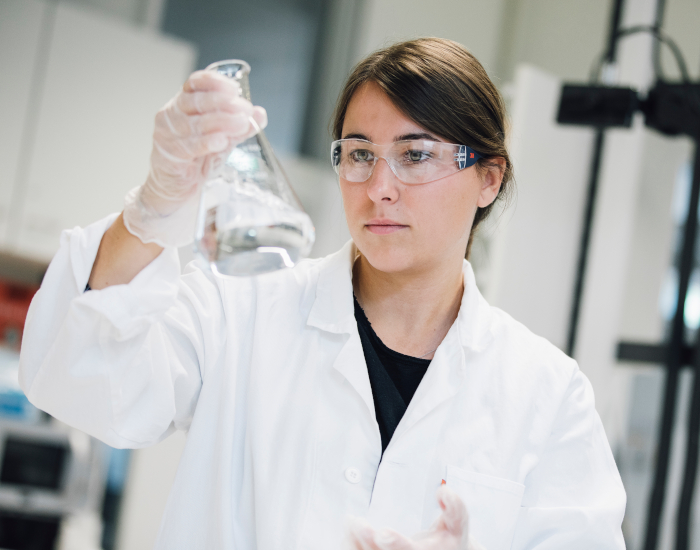Course types at the University of Graz
The course types at the University of Graz are listed in the statutory part of the study regulations. A total of 17 types of courses are distinguished:
Practical and application-oriented course types
- Courses are classes in which the students work on the course content together with the lecturers in an experience- and application-oriented manner.
-
Exercise classes must correspond to the practical and professional objectives of the studies and solve specific tasks.
-
Laboratory classes are courses that serve to teach and practice experimental techniques and skills.
-
Excursions contribute to the illustration and consolidation of teaching.
-
Excursions combined with exercise classes are a combination of excursions and exercises.
-
Internships/field work classes are intended to complement vocational training or scientific education in a meaningful way.


Content-oriented course types
-
Lectures are courses in which knowledge is imparted by the instructor.
-
Lectures combined with exercises are courses in which specific tasks and their solutions are dealt with in direct connection with the transfer of knowledge through lectures in accordance with the practical and professional objectives of the Diploma, Bachelor's and Master's degree programs.
-
Tutorials are courses that accompany lectures and can also be taught by qualified students.
-
Review courses are revision courses for diploma and bachelor's degree courses that relate to the teaching and learning contents covered in a course or examination. Students should be given the opportunity to express their wishes regarding the areas to be covered.
Resources
- Recording High Noon - Didactics at lunchtime The good lecture (uniTUBE video)
- Recording High Noon - Didactics at noon: Large groups: (K)ein Problem? (uniTUBE video)
- Recording Teaching Day 2011: Activating the design of large courses (uniTUBE video)
Research-oriented course types
-
Proseminars are preliminary stages to seminars. They have to impart basic knowledge of academic work, introduce students to the specialist literature and deal with exemplary problems of the subject through presentations, discussions and case studies.
-
Seminars are used for academic discussion. Participants make their own contributions. Seminars are usually concluded with a written paper.
-
Privatissima are special research seminars.
- Working groups are used to work together on specific questions, methods and techniques of research as well as an introduction to scientific collaboration in small groups.
- In projects, experimental and/or theoretical work or small research projects are carried out, taking into account all the necessary work steps.

